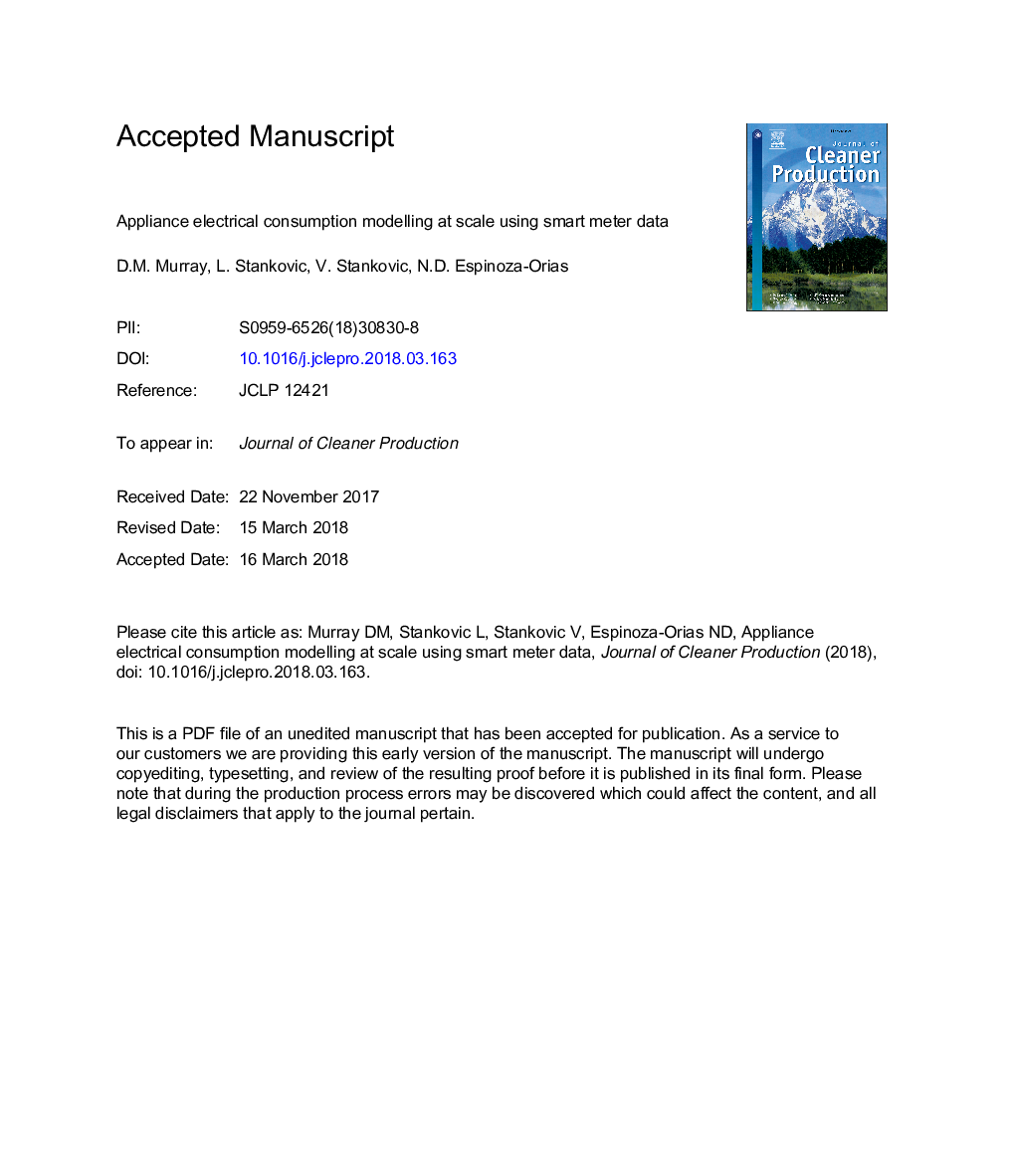| Article ID | Journal | Published Year | Pages | File Type |
|---|---|---|---|---|
| 8095818 | Journal of Cleaner Production | 2018 | 28 Pages |
Abstract
The food industry is one of the world's largest contributors to carbon emissions, due to energy consumption throughout the food life cycle. This paper is focused on the residential consumption phase of the food life cycle assessment (LCA), i.e., energy consumption during home cooking. Specifically, while much effort has been placed on improving appliance energy efficiency, appliance models used in various applications, including the food LCA, are not updated regularly. This process is hindered by the fact that the cooking appliance models are either very cumbersome, requiring knowledge of parameters which are difficult to obtain or dependent on manufacturers' data which do not always reflect variable cooking behaviour of the general public. This paper proposes a methodology for generating accurate appliance models from energy consumption data, obtained by smart meters that are becoming widely available worldwide, without detailed knowledge of additional parameters such as food being prepared, mass of food, etc. Furthermore, the proposed models, due to the nature of smart meter data, are built incorporating actual usage patterns reflecting specific cooking practice. We validate our results from large, geographically spread energy datasets and demonstrate, as a case study, the impact of up-to-date models in the consumption phase of food LCA.
Keywords
Related Topics
Physical Sciences and Engineering
Energy
Renewable Energy, Sustainability and the Environment
Authors
D.M. Murray, L. Stankovic, V. Stankovic, N.D. Espinoza-Orias,
